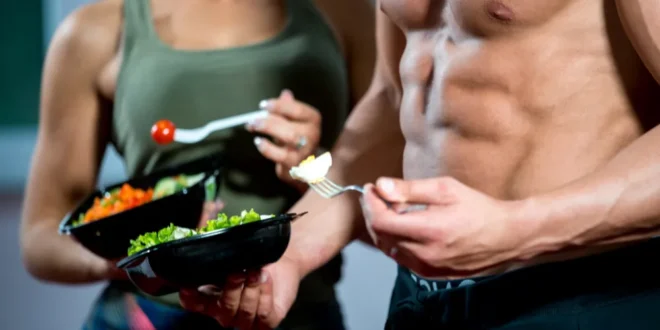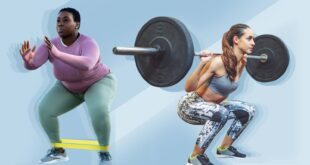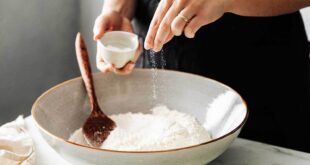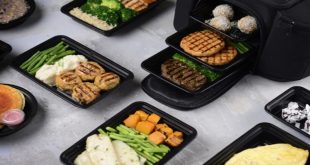A hiit training workout is one of the most efficient ways to burn fat, build endurance, and strengthen the heart. However, what you eat before and after a HIIT session can determine how well your body performs, recovers, and adapts. Nutrition and HIIT go hand in hand—your food choices directly affect energy, stamina, and recovery outcomes. For fitness enthusiasts in Singapore, where climate and lifestyle often demand high energy output, the right nutritional strategy ensures that every HIIT session delivers its full potential.
Understanding the Nutritional Demands of HIIT
HIIT is an intense training style that alternates between high-effort intervals and short recovery periods. This format places heavy demands on your energy systems and muscles. To perform well, the body must have access to the right balance of carbohydrates, proteins, and fats.
Unlike steady-state cardio, HIIT depletes glycogen stores quickly. If you start a session without adequate fuel, fatigue sets in early, leading to suboptimal performance. Similarly, neglecting post-workout nutrition delays muscle recovery and reduces long-term progress.
Pre-Workout Nutrition: Fuel for Peak Energy
The goal of pre-HIIT nutrition is to prepare the body with enough energy to handle explosive movements. Carbohydrates are your body’s preferred source of quick energy, while protein supports muscle endurance and repair.
Ideal Pre-Workout Timing
Eat 60 to 90 minutes before your session. This window allows digestion while keeping energy levels stable throughout the workout.
Smart Pre-HIIT Meal Ideas
-
Banana with Greek yoghurt: Combines fast-digesting carbs with light protein.
-
Oats with berries: Provides slow-release energy for longer sessions.
-
Wholegrain toast with almond butter: Delivers balanced carbs and fats for sustained fuel.
-
Brown rice with grilled chicken: A solid option for midday or evening workouts.
Avoid heavy, greasy, or high-fibre foods close to your session, as they can slow digestion and cause discomfort during training.
Hydration: The Forgotten Performance Element
Singapore’s tropical climate makes hydration especially critical. Even minor dehydration can cause fatigue and reduce performance output during HIIT. Drink at least 400–500 ml of water one to two hours before training. For longer sessions, include electrolyte-rich drinks to replace sodium and potassium lost through sweat.
Post-workout, rehydrate with water or coconut water to restore electrolyte balance and aid muscle function.
During Workout: Small Sips, Not Big Gulps
During a typical HIIT session lasting 30 minutes, you don’t need solid food. However, sipping water or a light electrolyte drink keeps the body cool and maintains fluid balance. For very intense or extended HIIT sessions, a small amount of a carbohydrate-based sports drink can help maintain energy levels.
Post-Workout Nutrition: Recovery and Rebuilding
Your post-workout meal is just as important as your training. HIIT depletes glycogen stores and breaks down muscle fibres. Refuelling within 30 to 60 minutes of your session ensures faster recovery, muscle repair, and reduced soreness.
Post-HIIT Nutrition Goals
-
Replenish glycogen: Replace the energy lost during intense intervals.
-
Repair muscle tissue: Supply protein for recovery and growth.
-
Reduce inflammation: Include antioxidants and healthy fats for cellular repair.
Recommended Post-Workout Foods
-
Grilled salmon with sweet potato: Protein and complex carbs with omega-3 fats.
-
Protein smoothie: Blend whey protein, banana, and oats for a quick meal.
-
Tofu stir-fry with brown rice: A plant-based option rich in amino acids.
-
Eggs and avocado toast: Balanced nutrients for post-session muscle repair.
For Singaporeans with packed schedules, meal prep or portable protein snacks like nuts or energy bars can help maintain consistency.
The Role of Macronutrients in HIIT Nutrition
Carbohydrates
Carbs provide quick energy for high-intensity intervals. Include complex carbs such as oats, quinoa, or brown rice before training, and simple carbs like fruits after workouts for fast recovery.
Protein
Protein supports muscle synthesis and prevents breakdown. Aim for 20–30 grams post-workout from lean sources such as chicken, eggs, fish, or tofu.
Fats
Healthy fats play a role in hormone balance and energy regulation. Incorporate small amounts of avocado, olive oil, or nuts throughout the day, but avoid consuming large amounts immediately before training.
The Power of Micronutrients
Vitamins and minerals support energy metabolism and muscle function. Magnesium helps with muscle relaxation, while B vitamins convert food into usable energy. Iron ensures oxygen delivery during workouts, and vitamin C aids tissue repair.
In a humid environment like Singapore, where sweat loss is higher, maintaining a diet rich in micronutrients helps prevent fatigue and enhances recovery efficiency.
The Connection Between Nutrition and Hormonal Balance
HIIT has a profound effect on hormones such as insulin, cortisol, and growth hormone. The right nutrition supports these changes positively. Eating balanced meals helps regulate blood sugar and cortisol levels, ensuring the body recovers efficiently without hormonal disruption.
Skipping meals or under-eating after HIIT can elevate cortisol levels, leading to fatigue and reduced results. A proper meal plan ensures hormonal balance and consistent energy.
Common Nutrition Mistakes in HIIT
Many people make dietary errors that limit progress. Avoiding these ensures sustainable improvement:
-
Skipping post-workout meals to “save calories.”
-
Overloading on caffeine before training.
-
Eating too close to workout time.
-
Neglecting hydration or electrolyte balance.
-
Relying solely on supplements instead of whole foods.
A well-structured nutrition plan supports consistency and energy retention across sessions.
The Role of True Fitness Singapore in Guiding Nutrition and Training Balance
At True Fitness Singapore, trainers emphasise that nutrition and HIIT go hand in hand. Members receive guidance on how to fuel their workouts effectively and recover efficiently. By integrating fitness coaching with nutritional awareness, participants experience improved endurance, faster recovery, and visible body composition results.
The combination of expert-led training and practical meal advice makes True Fitness a complete wellness destination for those serious about performance and long-term results.
Meal Timing for Maximum Impact
Timing is everything in HIIT nutrition. Small, well-timed meals prevent energy crashes and promote steady performance.
Suggested Daily Schedule for Evening HIIT
-
Breakfast: Oats with fruit and nuts.
-
Lunch: Grilled chicken with brown rice.
-
Pre-workout (1 hour before): Smoothie with banana and yoghurt.
-
Post-workout: Protein shake or lean dinner with vegetables.
Keeping your nutrition structured ensures your body has the right resources to perform and recover efficiently.
Supplements That Support HIIT Recovery
While whole foods are best, certain supplements can support performance and recovery when used correctly.
-
Whey protein: Speeds up muscle repair.
-
Creatine: Enhances power output and recovery.
-
BCAAs: Reduces muscle fatigue during training.
-
Electrolyte powder: Helps replenish minerals lost through sweat.
Consulting a qualified trainer or nutritionist before adding supplements ensures safe and effective use.
Final Thought
A hiit training workout delivers remarkable physical transformation, but its success depends on proper nutrition. The right fuel before exercise enhances energy and focus, while a balanced post-workout meal rebuilds and restores the body. Whether you are a beginner or an experienced athlete, aligning diet with training ensures that every session counts. In Singapore’s active fitness culture, understanding this nutrition synergy is the key to unlocking your body’s peak potential.
FAQs
Q1. What should I eat before a morning HIIT workout?
A light meal with fast-digesting carbs and protein, such as a banana with yoghurt or oats with fruit, works best.
Q2. Is it okay to train on an empty stomach?
It depends on individual tolerance. Some people perform well in a fasted state, but most benefit from light pre-workout nutrition for sustained energy.
Q3. How soon should I eat after HIIT?
Consume a balanced meal or shake within 30–60 minutes post-workout to support muscle recovery and glycogen replenishment.
Q4. What are the best foods for muscle recovery?
Lean proteins like fish, chicken, or tofu combined with complex carbs such as brown rice or sweet potatoes are ideal.
Q5. How much water should I drink during HIIT?
Sip small amounts regularly during the session and drink at least 2–3 litres throughout the day to maintain hydration in Singapore’s climate.
 Abhi Foods – Meal Planning Tips
Abhi Foods – Meal Planning Tips





